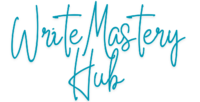………………………………..Article Writing for Beginners………………………………
Hello everyone and welcome to the World of Article Writing!
Hey there, aspiring writer! You want to create and share your ideas with people.
then you’re ready to be creative!
Do you consider article writing as a strenuous one? Well, let me tell you a secret: don’t worry, it’s not as complicated as you might think.
In fact, anyone can become an expert in writing good articles in the right forums that capture the interest of the readers.
Well then, what is so great about article writing?
Thus, article writing is a highly effective strategy to disseminate ideas, share knowledge, and promote oneself as an expert.
For bloggers, freelancers, or business owners, article writing can help you in reaching people, identifying yourself as an expert in this chosen area, and attracting people to your website.
And the best part? A skill that can be easily mastered with a lot of practice and perseverance.
here the question arises, “Why This Article Matters?”
Right at the beginning of the article writing career you might be made to wonder where you can begin from. That is where this article comes into the picture! In this article, we will grab your hand and guide you through all the fundamental steps of writing an article.
This article is about selecting your topic, writing and submitting your article right through to making it public. By the end of this article, you’ll be equipped with the knowledge and confidence to write articles that shine.
Well, if you are ready to discover more about article writing then let it begin here!
What is Article Writing, Anyway?

Hence the question, what does article writing entail? Oh wait, let me explain it for you!
Article writing is a type of content creation which focuses on creating informative, interesting and professional articles on the chosen topic or subject. It is a means to pass a message to a larger group of people as regarded as an expert in that specialty.
Types of Articles: A Quick Rundown
You may be asking yourself what kinds of articles are there in the world today to help you with your research. Well, here are a few examples:
Blog posts
Such articles are those written on an individual’s blog or a company blog, and are typically less formal in writing style.
Guest posts
These are articles that are written for someone else’s blog or website, and are a great way to build backlinks and establish yourself as an expert in your niche.
Ezine articles
These are used in the online magazine or ezine publishing and are common in product or service advertisements.
News articles
These are articles that are done for newspapers or online daily news providers, the tone used is mostly formal.
How-to articles
These are articles that are used in telling the reader how to do something, commonly used in giving out information.
The Benefits of Article Writing: Why You Should Give it a Try
Well, this brings with it the question you might be asking yourself, why should one be bothered to write articles?
Well, here are just a few benefits:
Establishing authority
Writing articles on a certain subject or an area of specialization makes readers trust you and buy your ideas.
Generate leads
Web articles can be employed to advertise certain products or services, or to bring traffic to your website.
Improve SEO
The published articles are beneficial for the website ranking and bring more site visibility on the internet.
Build relationships
Articles can help you build relationships with your readers, and can establish you as a thought leader in your industry.
Drive traffic
Articles can promote your website and in fact can increase traffic to the site.
Thus, article writing is one of the most effective techniques of sharing ideas, building authority, and increasing the popularity of the website.
With this knowledge of what article writing is and what kind of articles are available out there, you can begin writing effective content that informs your target audience as well as get you what you want.
Preparing to Write an Article: The Foundation of Success

With a clear understanding of what article writing is and the benefits that come with it, the next step is to make preparations towards starting with the writing of your first article.
This is where the miracle takes place! In this part of the article, let us discuss some of the important things to do before one begins to write.
It is the preliminary step in the process of creating the perfect article.
Step 1: Choosing a Topic
The first point in writing an article is to always select a subject/Topic. This might sound obvious, but it is vital to choose a topic that will interest your intended populace and serves your purpose.
Here are some tips to help you choose a topic:
Identify your niche
What are you passionate about? What do you want to talk about?
Research popular topics
Go to Google Trends or use your social media to read what is popular in your type of content.
Brainstorm ideas
Spend a couple of minutes writing down possible ideas connected with your chosen topic. Jot down every single thought that reveals itself to you.
Narrow down your options
Select a topic that would be of interest to you and one which encompasses a specific theme.
step 2: Research
Once you’ve chosen a topic, it’s time to start researching. This is where you gather relevant information, statistics, and insights to support your article.
Here are some suggestions to help you research your subject:
Use credible sources
Make sure the resources are trustworthy, recognized, like the academic journals, government sites, or established news organizations.
Take notes
As you search and collect information, make sure to note the main points you are going to want to cover in your article.
Organize your research
Now it’s time to organize your research. You can use Evernote or Trello to organize your research and keep an eye on your sources.
Step 3: Creating an Outline
Now that you have researched your topic, it is now time to draft an outline. This will help to organize your article in logical order.
Tips on how to create an outline are shown below:
Determine the Structure
Decide on the structure of your article. Will it be a listicle, a how-to guide, or a narrative piece?
Break down content
Break down content into smaller sections, subheadings, etc.
Create a rough outline
Use the tool MindMeister or Coggle to produce a rough outline of your article.
Step 4: Determine Writing Objectives and Timelines
This is the final step before you set up your writing objectives and timelines.
These will keep you focused and motivated all throughout your writing.
Here are some tips for establishing writing objectives and timelines:
Word count
How many words do you want to write and hence set a target for yourself.
Writing Schedule
Work out a schedule best suited for you. Would it be in the morning, afternoon or evening?
Deadline
Fix a time for yourself before which, you would have completed the article. This is sure to keep you in track and keep away from procrastination.
Preparing to write an article is a crucial step in the writing process.
There is nothing more exciting than to first pick a topic; after that, to go about researching the topic; create an outline; and then set writing goals and deadlines so that you can begin writing your article.
Remember that without staying focused, motivated, and organized, success is impossible.
Write Your First Article: From Ideas to Reality

Now that you’ve prepared to write your article, it’s time to get down to business.
This is where the magic happens, folks!
This section of the article deals with some very essential tips and techniques that will help you write a compelling article geared towards interesting your readers and engaging them with their lives.
Tip 1: Write a Compelling Headline
Your headline is going to be the first thing that your readers see. So make it good!
A compelling headline has three key characteristics: it grabs the reader’s attention, it is informative, and it relates to the article itself.
Here are some tips for creating a compelling headline:
Keep it short and sweet
Your headline should be 6-8 words in length.
Use action verbs
Using “Learn”, “Discover”, or “Get” words can be an excellent way to increase a sense of urgency.
Be specific
Do not write headlines that are vague and therefore do not give readers an idea of what to expect.
Use keywords
Include relevant keywords that will help with SEO.
Tip 2: Creating an Effective Introduction
Your introduction should capture your readers’ attention and keep them interested in reading more.
Here are some ways by which you can create a perfect introduction as follows:
Start with a hook
A surprising statistic, a thought-provoking question, or a personal anecdote will all vie for the attention of your readers and entice them to keep reading.
Provide context
Provide the reader with some background information about the topic to help them understand its relevance.
Preview the main points
Give your readers an idea of what to expect from the rest of the article.
Keep it brief
An introduction of 100-150 words is more than enough.
Tip 3: Writing Body Paragraphs
Body paragraphs are the places where you add more details and evidence to your major points.
Here are some tips on writing good body paragraphs:
Use the MEAT method
Every paragraph should have a Main point, Evidence, Analysis, and Transition to the next paragraph.
Be clear and concise
Avoid jargon or overly complicated language that may confuse your readers.
Use examples and anecdotes
Use examples or personal anecdotes to relate your points to real life.
Keep it organized
Use subheadings and bullet points to keep your content organized so that it becomes easy to read.
Tip 4: Concluding Your Article
Conclude your article by summarizing your main points and leaving something in your reader’s mind to think about.
Here are tips on how to go about concluding your article:
Summarize the main points
Recap the main points you made in your article.
emphasize the importance
Highlight why the topic matters.
Call to action
Encourage readers to take action or engage with your content.
End with a thought-provoking question
Leave them with something to ponder and encourage further discussion.
Writing your first article can be very daunting; however, with the help of these tips and techniques, you’ll find yourself writing a great article that will really interest your readers.
Your headline has to attract the attention of your readers, your introduction has to be interesting, your body paragraphs informative, and make your conclusion ponderable.
Editing and Refining Your Article: The Final Moves

You’ve done it! You have finally written your first article.
Now is the time to edit and refine your article so that it shines. Editing is part of the writing process, and is one point that allows you to transform a good article into a great one.
Within the section ahead, we’ll talk about self-editing, getting feedback from others, and revising and refining your article.
Self-Editing Techniques
Self-editing involves checking and rewriting one’s work.
Here are some self-editing techniques which will help you polish the article:
Take a break
Step away from your article for a few hours or days so that your mind clears up before facing the paper with fresh eyes.
Reading it out
Reading your article aloud may help in discovering awkward phrasing, unclear sentences, and grammatical errors.
Be consistent
Your article must be consistent in tone, style, and formatting.
Use grammar and spell check tools
Grammarly or ProWritingAid is useful in pointing out grammatical errors with suggestions for improvement
Eliminate unnecessary words
The use of unnecessary words and phrases in the essay should be cut out to ensure it’s concise and engaging.
Getting Feedback from Others
Other people’s opinions are a great ingredient in the editing process.
Some methods of soliciting advice from other individuals include:
Writing group
You may join a writing group or community where you are likely to get opinions from fellow writers.
Friends or family
Take your article to a friend or a family member and ask them to give their opinion about it.
Hire an editor
If you are serious about article writing then hire a professional editor to take a close look at your paper, read over it with a critical eye, and give you constructive feedback on how to improve.
Make use of web pages
Use online forums or social networking sites for discussions to get valuable feedback from others.
Revising and Refining Your Article
Once you have had comments from other people, it is now your turn to revise and refine your article.
Here are some ways in which you might revise and refine your article:
Reflect on the feedback
Go through the feedback you have received from others and work on making the changes accordingly
Revision
Revise your article for better clarity, coherence, and overall flow.
Refine your language
Refine your language to make it more concise, engaging, and effective.
Check for errors
Check for grammatical, punctuation, and spelling errors to ensure that your article is error-free.
Editing is one of the most critical steps in the writing process; therefore, through self-editing techniques, obtaining others’ feedback and going back to revise and refine your article, you would be able to write a quality engaging informative piece for your readers.
Remember the editing process is not one-step affair but rather an ongoing process requiring patience, persistence, and attention to detail.
Publishing and Promoting Your Article: Getting Your Work Out There

You’re finished writing and editing your article. Now it’s time to publish it and market it to the world.
In this Section of the article, we’ll discuss the options for publishing your article and give you some marketing tips.
Options for Publishing Your Article
There are a lot of options for publishing your article which are:
Personal blog
You can just put it up on your personal blog, so people can see what you write.
Guest posting
You can post your article on other people’s websites and blogs to reach a larger audience.
Medium
You can publish it on Medium; it is pretty popular among writers and readers.
LinkedIn Pulse
Even LinkedIn Pulse is another platform for sharing ideas and thoughts with other professionals.
Online magazines and journals
Publish your article in online magazines and journals to reach a targeted audience.
Promotion Tips for Your Article
Once you have published your article it is the time to show it off to the entire world.
To do so, you can follow these tips to promote your article:
Social media
Share your article on social media like Facebook, Twitter, LinkedIn, and Instagram.
Email marketing
Publish your article on your email list to reach to the intended target audience.
Content aggregators
You can submit your article to any of the content aggregators like Alltop, Blogarama, Technorati.
Influencer outreach
Identify influencers in your domain and request them to share your article with their audience.
Paid advertising
Publish your article through paid adverts in Google AdWords or Facebook Ads.
Optimize for SEO
Optimize your article for search engines so that more people can find it.
additional Tips to Promote Your Article
Repurpose your content
Turn your article into other media formats such as video, podcasts or infographics so you can get published through different channels.
Collaborate with other writers
Collaborate with other writers and promote each other’s articles.
Interact with your audience
Interact with your audience by giving responses and creating a community around your article.
Track your analytics
Track your analytics in order to see how well your article is doing and, subsequently make amendments in the tactics of promotion.
It’s very important to publish and promote your article as this will increase the readers’ circle and help in achieving your writing goals.
Choose the form you would like your article to be published in, and also seek tips on how to promote it as these will increase your visibility, enlarge the circle of readers, and help you in meeting your writing goals. Once again, remember that the process of promoting your article is not a one-time process.
It takes the effort, patience, and persistence of you as a writer to get people reading, sharing, and publishing your work.
Common Mistakes to Be Avoided: Stepping Stones to Success

As a beginner in article writing, it is relatively easy to commit errors that can be the cause of some obstruction and impact your career as a writer.
We shall dedicate this section to common mistakes beginners make when writing articles, together with some tips on how to avoid such.
Common Mistakes Beginners Make in Article Writing
Below are some of the common mistakes beginners commit in article writing:
Poor research
Not conducting sufficient research on the subject so that you provide irrelevant or partial information.
Lack of a proper structure
Lack of proper structure or outline, so the article is presented in a disjointed and confusing manner.
Grammatical and spelling errors
Failure to proof-read the article even more carefully thus leaving grammatical and spelling mistakes.
Lack of engagement
Failure on your part to make the article interesting and interesting, and thereby failing to retain interest among the readers.
Failure to optimize for SEO
Ensuring that the article is not optimized for search engines leads to low visibility as well as very low traffic.
How to Avoid Making these Mistakes
The following are some of the ways one should avoid these common mistakes:
Do proper research
Ensure you take time and research on the topic with credible sources. Always ensure that you verify the information.
Develop a clear structure
Develop an outline and structure for the article. Take the time to break up the content into headings and subheadings.
Edit for Errors
Edit the article properly using checking tools for grammatical as well as spelling errors.
Engage your audience
Use interesting headlines and introductions, as well as conclusions to draw the reader’s interest and maintain them reading.
SEO Optimize
Use keywords and phrases appropriately within the article as well as try to optimize the article for online search applications for improved visibility and traffic.
Additional Tips on Preventing Mistakes
Read widely
Read as much as you can, paying attention to structure, style, and content.
Get feedback
Get other people’s views, whether from a writing group, a mentor, or a professional editor.
Practice regularly
Write regularly, experimenting with styles and techniques.
Learn from mistakes
Learn from mistakes, using them as a learning experience that enhances your growth as a writer.
Avoiding common mistakes in article writing is crucial to success.
Awareness of these common mistakes and the steps taken to avoid them will lead towards improving your writing skills, growing your confidence, and succeeding at your writing endeavors.
Remember, writing is a process, and it takes time and practice to develop your skills.
Conclusion

Congratulations! You have read through this article on article writing for beginners.
Hopefully, from this article, you have been inspired to start writing and begin improving your article writing skills. Remember, writing is a process. Time and practice must be spent to develop the skill.
Don’t get frustrated with your first couple of posts. Every writer starts from somewhere, and the most important thing is to keep writing and learning.
We would encourage you to keep writing and improving, and always learning and practicing. With time and effort, you will be well on your way to writing great articles that engage and inform your readers.
What’s Next?
Now that you’ve read this article, we would like to challenge you to do the next right step in writing.
or Contact here for publishing guest post.
just write that first article using the great tips and strategies from this article.
Do not mind if it is not up to par, just get into it and see where it takes you!
Happy writing, thanks for reading!




Pingback: The Ultimate Guide to Article Writing - writemasteryhub.com
Pingback: From Ashes to Brilliance with 100 Innovative Article Writing Topics - writemasteryhub.com
Pingback: 8 essential Features of Article Writing in 2025 - writemasteryhub.com